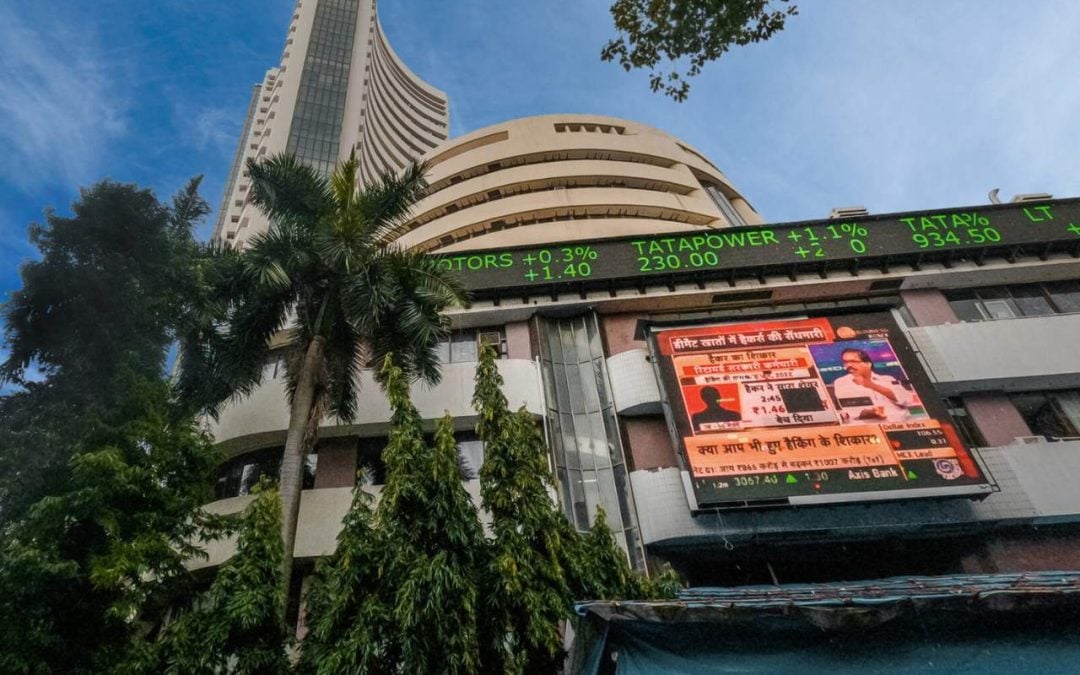When FIIs (Foreign Institutional Investors) and DIIs (Domestic Institutional Investors) both increase their stake in a particular stock, it is generally considered a positive signal because Institutional investors increasing their stake reflects the high confidence in the Stock’s fundamentals, growth potential, and management quality.
5 Stocks where both the FIIs and the DIIs have increased their stake in Q4FY25:
1. INDUS TOWERS
Headquartered in Gurugram and established in 2007, Indus Tower is one of India’s leading telecom infrastructure companies, which provides passive infrastructure services like towers, shelters, and power systems to wireless telecom operators.
FIIs held 26.15 percent of the Company in Q3FY25 and have increased 0.27 percent of their total stake, they now hold 26.42 percent in Q4FY25.
DIIs held 17.79 percent of the Company in Q3FY25 and have increased 0.62 percent of their total stake, they now hold 18.41 percent in Q4FY25. Indus Tower has a Market Capitalization of Rs. 1,09,495 Crores.
2. SBI CARDS
Established in 1998 as a joint venture between SBI Cards and GE Capital. SBI Cards and Payment Services is a prominent credit card issuer in India, They offer a wide range of credit card services tailored to individual and corporate needs
FIIs held 9.52 percent of the Company in Q3FY25 and have increased 0.36 percent of their total stake, they are now holding 9.88 percent in Q4FY25.
DIIs held 16.47 percent of the Company in Q3FY25 and have increased 0.75 percent of their total stake, they now hold 17.22 percent in Q4FY25. SBI Cards has a Market Capitalization of Rs. 88,181 Crores.
Also read: Reliance Industries Revenue Stream: Segment-wise Revenue and Growth Breakdown
3. BANK OF BARODA
Established in 1908 in Vadodara, Gujarat, Bank of Baroda is one of India’s largest public sector banks. The bank has grown into a global financial institution with a presence in several countries.
FIIs held 8.90 percent of the Company in Q3FY25 and have increased 0.08 percent of their total stake, they are now holding 8.98 percent in Q4FY25.
DIIs held 17.86 percent of the Company in Q3FY25 and have increased 0.11 percent of their total stake, they now hold 17.97 percent in Q4FY25. Bank of Baroda has a Market Capitalization of Rs. 1,29,982 Crores
4. MAZAGON DOCK SHIPBUILDERS
Established in 1934 and Headquartered in Mumbai, the company is India’s premier shipyard under the Ministry of Defence, specializing in the construction and repair of warships and submarines for the Indian Navy. The company also fabricates offshore platforms and support vessels for oil exploration.
FIIs held 1.55 percent of the Company in Q3FY25 and have increased 0.71 percent of their total stake; they are now holding 2.26 percent in Q4FY25.
DIIs held 1.46 percent of the Company in Q3FY25 and have increased 0.23 percent of their total stake, they now hold 1.69 percent in Q4FY25. Mazagon Dock Shipbuilders has a Market Capitalization of Rs. 1,09,584 Crores
5. BOMBAY STOCK EXCHANGE
Established in 1875 by cotton merchant Premchand Roychand, BSE is Asia’s oldest stock exchange. It has evolved into a premier financial institution, offering a transparent and efficient platform for trading a diverse range of financial instruments, including equities, derivatives, currencies, debt instruments, and mutual funds.
FIIs held 16.03 percent of the Company in Q3FY25 and have increased 0.75 percent of their total stake, they are now holding 16.78 percent in Q4FY25.
DIIs held 12.07 percent of the Company in Q3FY25 and have increased 0.26 percent of their total stake, they now hold 12.33 percent in Q4FY25. BSE Has a Market Capitalization of Rs. 87,907 Crores.
Written By Abhishek Das
Disclaimer

The views and investment tips expressed by investment experts/broking houses/rating agencies on tradebrains.in are their own, and not that of the website or its management. Investing in equities poses a risk of financial losses. Investors must therefore exercise due caution while investing or trading in stocks. Dailyraven Technologies or the author are not liable for any losses caused as a result of the decision based on this article. Please consult your investment advisor before investing.


